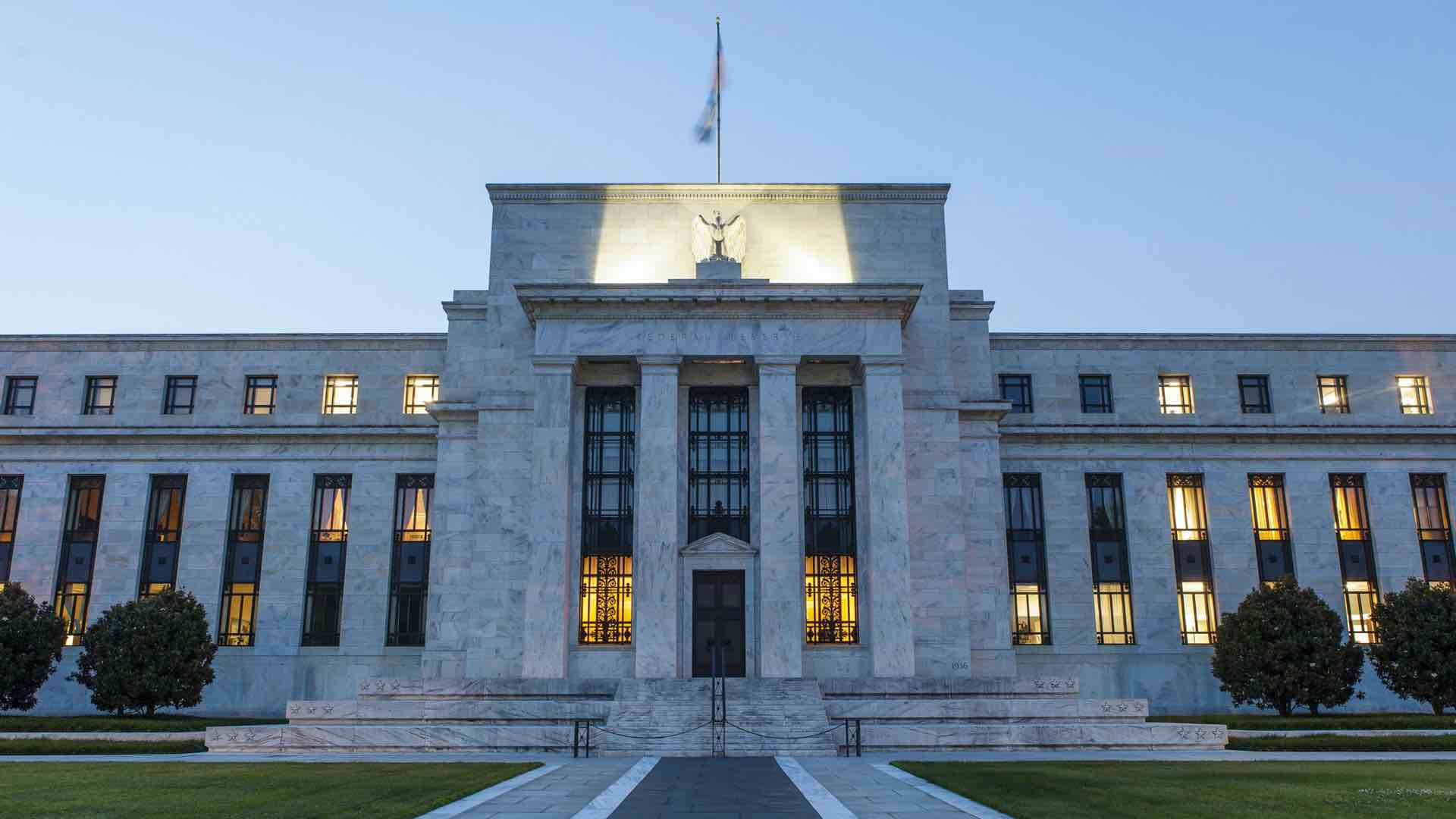| | | | | | | Presented By Northern Trust | | | | Axios Markets | | By Aja Whitaker-Moore ·Sep 20, 2021 | | Hello, Monday. Thank you for hanging with the Axios Business team. 🍭Our time with Sam Ro was short, but sweet. I will miss his insights and waking up to an inbox and Slack channel filled with the news, commentary and data points he pored over — all before 6am. Fill my inbox with your Markets obsessions instead — aja.moore@axios.com. Today's newsletter in 1,244 words, 5 minutes. | | | | | | 1 big thing: Minority-owned banks' growing Wall Street presence |  | | | Illustration: Aïda Amer/Axios | | | | Wall Street has long had a reputation for being a boys' club with a diversity problem. But recently, the biggest banks have done something surprising: elevated women and minority-owned banks as partners in deals, writes Axios' Kate Marino. Why it matters: Firms owned by underrepresented groups are getting a real shot at demonstrating what they bring to the table when it comes to raising capital for blue-chip American companies. Driving the news: Companies like Walmart and Verizon have tapped a handful of women and minority-owned banks as part of the syndicates that placed billion-dollar bond deals this month. Dutch Bros did the same in its IPO last week. How it works: When big investment banks like Goldman Sachs or JPMorgan get a mandate to raise capital for a company, they typically bring in a handful of other banks, large and small, to split up the underwriting risk. - A question now being asked by their corporate clients: Who are your diverse partners?
The answer is firms like Hispanic-owned Samuel A. Ramirez, AmeriVet Securities (Black and service-disabled veteran-owned), Siebert Williams Shank & Co (Black- and women-owned), and Seelaus (woman-owned). - These firms have all seen a sharp uptick in deal activity, a trend that kicked into higher gear after last summer's racial justice protests put a larger spotlight on leveling the playing field for economic opportunity.
What's happening: ESG-flavored bonds led the way. Even before 2020, both the companies that issue green or social bonds and the investors that buy them wanted to see diverse representation in their financial partners. - Municipal bond deals, too. Some government entities aim to show they're committed to providing opportunities across racial and gender lines.
State of play: Now, most large banks have some sort of initiative underway to help corporate clients vet minority-owned banks and select the ones best-suited to their deals, sources tell Axios. - The way that has played out for the firms is not only in more deals, but in larger allocations, higher-level roles, and higher fee percentages, says AmeriVet Securities co-CEO Mercedes Elias.
- In a watershed moment, last November Allstate issued a $1.2 billion bond with a group of only underwriters owned by underrepresented groups.
The bottom line: "When we demonstrate the ability to successfully execute large or complex financings, other issuers recognize that, and they are more willing to give us additional opportunities to serve in a leading capacity," Jamiyl Flemming, senior VP at Siebert Williams Shank, tells Axios. Go deeper. |     | | | | | | Bonus Chart: D&I deal count |  Data: Bloomberg; Chart: Jared Whalen/Axios By the numbers: AmeriVet says its total value of co-managed deals increased by 84% year over year in 2020. - Ramirez was bookrunner on one deal in 2018, valued at $400 million. Compare that to 2021 so far, in which Ramirez has already been bookrunner and co-lead on six transactions with an average deal size of $1.36 billion.
- Siebert's 2020 senior-managed municipal bond volume of $141 billion was nearly three times the $52 billion it did in 2010.
|     | | | | | | 2. Catch up quick | | A revolving door from big accounting firms to the U.S. Treasury Department helps the industry shape tax rules from the inside. (NYT) The Biden administration aims to crack down on hackers and ransomware attacks with new sanctions and risk guidance for businesses. (WSJ) |     | | | | | | A message from Northern Trust | | Are you making the most of low-interest rates? | | |  | | | | Explore six facets of wealth planning — from estate planning to borrowing to investing, including opportunities for family offices, business owners and executives — that can be beneficial in a low, but eventually rising, interest rate environment. Learn more. | | | | | | 3. Delta variant fears curb fall flying |  | | | Travelers in the Miami International Airport. (Photo by Joe Raedle/Getty Images) | | | | Continued worries about the Delta variant are derailing fall travel plans, Axios' Hope King reports. - Thanksgiving domestic flight bookings in August were 18% lower this year compared with 2019, according to a new Adobe Digital Economy Index report out this morning.
Why it matters: Spring hopes that air travel would pick up later in the year, providing much-needed relief to a battered industry, have been dashed. The big picture: Domestic flight demand is still far off pre-pandemic levels. - Online bookings last month reached $4 billion, a decline of 35% from pre-pandemic levels in August 2019 and 24% from this July.
- Year-to-date through August, total domestic bookings represent $38 billion, down 30% from the same time period in 2019.
What they're saying: When flight bookings for November and December were up 9% and 17% in March versus March 2019, it was a promising signal, says Vivek Pandya, lead analyst at Adobe Digital Insights. - But consumers became more cautious as the Delta variant spread. The bulk of bookings happens three to four months before peak periods, so August is beginning to show a better picture of what the rest of the year might look like, Pandya adds.
The bottom line: The economy's recovery has been uneven and is still dependent on solving the health crisis. |     | | |  | | | | If you like this newsletter, your friends may, too! Refer your friends and get free Axios swag when they sign up. | | | | | | | | 4. Crypto lending under the microscope |  | | | Illustration: Shoshana Gordon/Axios | | | | There is now yet another example of U.S. regulators looking askance at the cryptocurrency lending industry, writes CoinDesk's Zack Seward. Driving the news: Crypto lender Celsius was hit with securities violations from three separate state regulators on Friday. Between the lines: The root cause is the economy's current no-interest environment and the desire from a growing crop of U.S. bitcoin holders to get yield on their crypto. What's happening: A handful of crypto lenders have sprouted up. They will gladly hold your bitcoin, lend it out and give you some interest on the deal. - These interest-bearing accounts generate far more yield than your local savings account.
- Yes, but: A bevy of state regulators say these accounts amount to unregistered securities.
Context: It all started with crypto lender BlockFi. In July, New Jersey, Texas and others took issue with the firm's interest-bearing accounts. - Regulators said the product, which put customers' cryptocurrencies in the lending platform's control for BlockFi to invest and commingle with other funds, may violate securities law.
In steps Coinbase. Thanks to a tweetstorm this month by Coinbase CEO Brian Armstrong, it became clear that the SEC had similar concerns. - A forthcoming "Lend" product from the crypto giant had been hit with a red flag from the SEC. Why Coinbase ran afoul of U.S. regulations was unclear — or so claimed Armstrong.
Fast forward to Friday: State regulators in Texas, New Jersey and Alabama acted in quick succession against Celsius. - "If you sell securities in NJ, you need to comply with NJ's securities laws. And that includes those operating in the cryptocurrency market," New Jersey's acting attorney general, Andrew Bruck, said in a tweet announcing the Garden State's cease-and-desist against Celsius.
- "They should be cheering for us as we're effectively helping redistribute wealth and provide opportunity for everybody, not just the 1%," Celsius CEO Alex Mashinsksy said in an AMA to the company's faithful.
The bottom line: Crypto lenders don't really comport with current regulations and regulators are awakening to this fact. |     | | | | | | 5. What we're watching this week 👀 |  | | | Jerome Powell, chairman of the U.S. Federal Reserve, speaks virtually. Photo: Daniel Acker/Bloomberg via Getty Images | | | | All eyes will be on the Fed — despite the likelihood that the Federal Open Market Committee meetings on Tuesday and Wednesday won't yield concrete timelines for tapering to begin, Hope writes. Why it matters: Most Fed officials, including chair Jerome Powell, have said it could be time to wind down pandemic-era support this year. - Yes, but: The recent rise of COVID-19 cases and a dismal August jobs report may signal that the economy has not recovered to a level where Fed officials feel it is strong enough.
State of play: The U.S. added just 235,000 jobs last month, a huge contrast to the 725,000 jobs expected. - The number of Americans contracting COVID-19 grew smaller over the past two weeks, after spiking in early August.
What they're saying: "[Our U.S. economists] expect the statement to adopt Chair Powell's language that a reduction in the pace of asset purchases is appropriate 'this year' as long as the economy remains on track," the Deutsche Bank Research team wrote in a note Friday. |     | | | | | | A message from Northern Trust | | Are there surprises lurking in your estate plan? | | |  | | | | Estate plans that fall out of date can lead to unpleasant surprises. Proposed tax changes underscore the importance of revisiting your plan now. Let us stress test your plan to ensure your lifetime, family and philanthropic goals are fulfilled. Test your plan. | | |  | | It'll help you deliver employee communications more effectively. | | | | | | Axios thanks our partners for supporting our newsletters. If you're interested in advertising, learn more here.
Sponsorship has no influence on editorial content. Axios, 3100 Clarendon Blvd, Suite 1300, Arlington VA 22201 | | | You received this email because you signed up for newsletters from Axios.
Change your preferences or unsubscribe here. | | | Was this email forwarded to you?
Sign up now to get Axios in your inbox. | | | | Follow Axios on social media:    | | | | | |













No comments:
Post a Comment